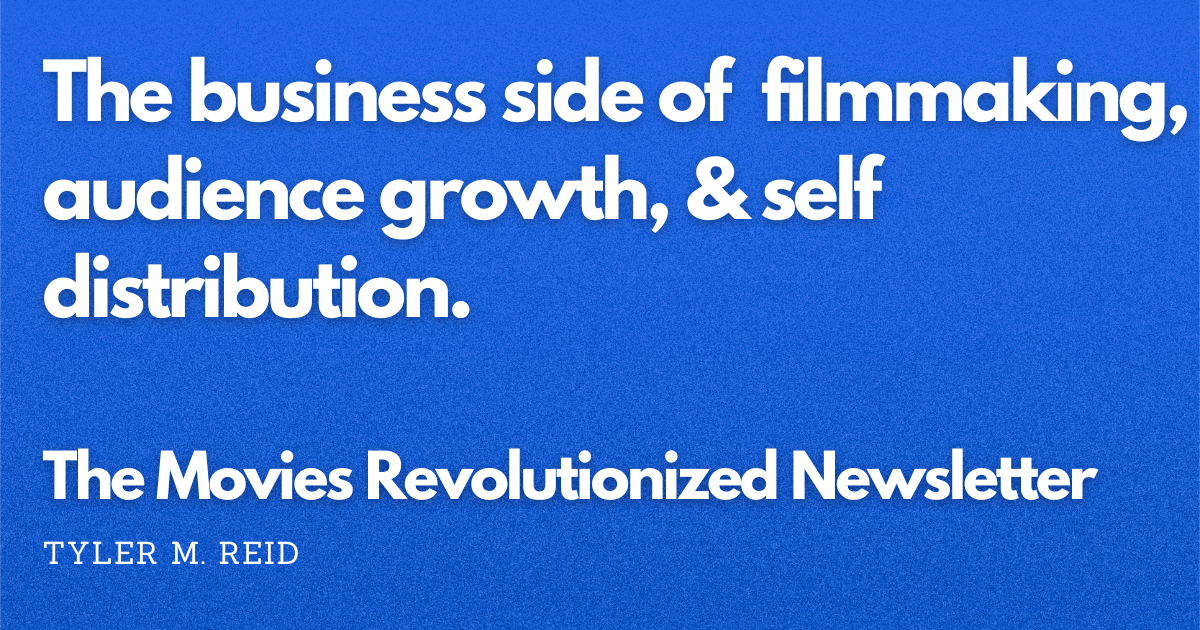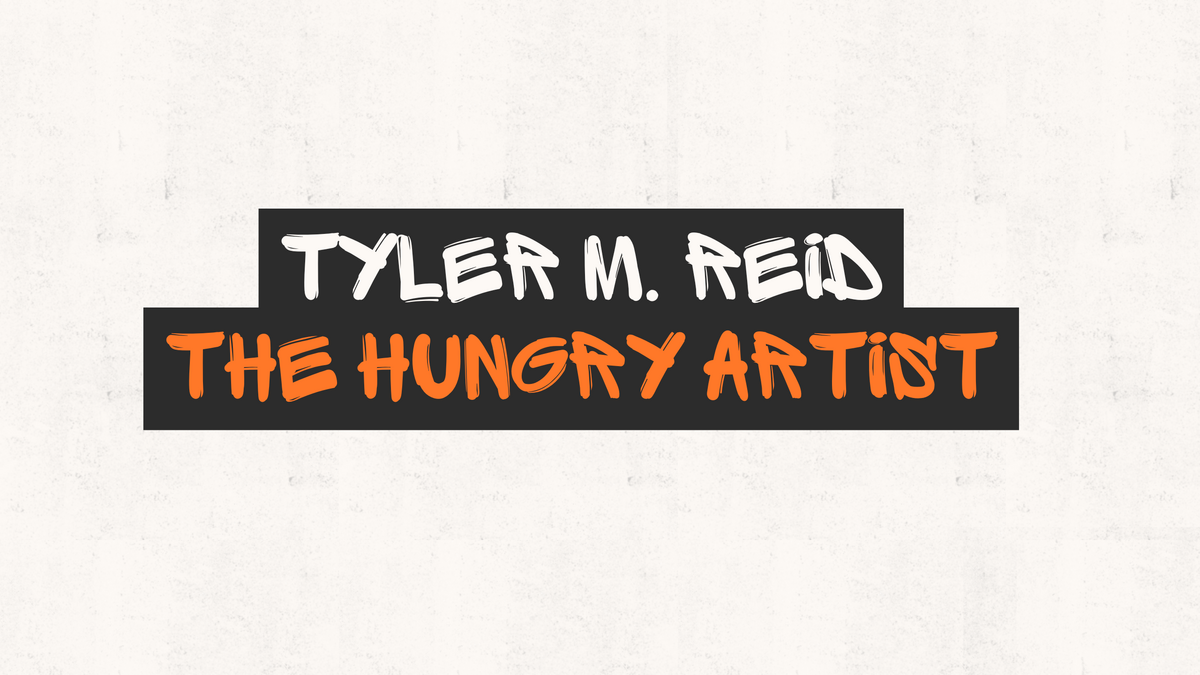The Number One Goal is Financing Your Film
Of the questions I get asked the most, it is always about how to finance your film.
I’ve already written four articles about this! From finding sponsors to building a pitch deck for investors, using multiple crowdfunding campaigns, and how to find investors. On top of that, by the time you read this article I will have released another article talking about international co-financing.
There is one area I have not talked about, and that is decentralized film financing using new technologies. The main reason I have not talked about it, is because I feel I haven’t learned enough. Since the topic is relatively new and can be complex, it is better that I don’t speak on it, so that I don’t give bad advice or information.
Instead I sought out the knowledge of a great LinkedIn connection I have with Marc Schaumburg-Ingwersen, who I consider one of the most knowledgable professionals on the subject.
I decided the best route to discuss decentralized film financing was through a Q&A session with Marc.
What is the main form of decentralized film financing?
The current leading forms of decentralized film financing are primarily driven by blockchain and cryptocurrency technologies, with platforms like Decentralized Pictures and Mogul Productions spearheading the movement I use here as an example.
Decentralized Pictures is a nonprofit organization co-founded by Roman Coppola, utilizing blockchain to democratize film funding. Filmmakers can submit their projects using the platform's native FILMCredits, which are earned by community members who review and rate submissions. Successful projects receive funding based on community votes, providing a transparent and decentralized method of selecting and financing films. Recent activities include awarding $100,000 in completion funds to the film "Calladita" and $50,000 to "Bad Like Brooklyn Dancehall".
Mogul Productions employs a similar decentralized model but focuses heavily on NFTs (Non-Fungible Tokens). Their platform allows users to purchase STARS tokens, which can be used to vote on and support film projects. Mogul has introduced various NFT Access Passes that offer exclusive experiences like visiting film sets and attending premieres. They have also partnered with notable artists to create and auction NFTs, further integrating blockchain technology into film financing
These platforms are transforming the traditional, centralized film financing model by leveraging blockchain to ensure transparency, community involvement, and easier access to funding for independent filmmakers.
Most Accessible Route for Indie Filmmakers
Crowdfunding remains the most accessible route for indie filmmakers. Platforms like Kickstarter and Indiegogo allow filmmakers to pitch their projects directly to the public, who can contribute funds in exchange for various rewards. Which is still a kind of decentralized film financing.
This method requires minimal legal knowledge compared to navigating private investments, grants, or co-financing deals, which often involve complex legal agreements and extensive paperwork.
Challenges of Using Decentralized Film Financing
1. Technical Barriers:
- Blockchain Literacy: Filmmakers must understand blockchain technology and cryptocurrency, which can be intimidating for those not tech-savvy. And still for everyone also too.
- Platform Navigation: Learning to use platforms like Decentralized Pictures or Mogul Productions, including managing digital wallets and tokens, requires a new skill set.
2. Regulatory Uncertainty:
- Legal Framework: The regulatory environment for blockchain and cryptocurrencies is still evolving, leading to uncertainty and potential legal risks.
- Compliance: Filmmakers need to ensure compliance with various laws and regulations, which can vary significantly by region.
3. Market Volatility: Still the biggest thread!
- Cryptocurrency Fluctuations: The value of cryptocurrencies can be highly volatile, which can affect the amount of funding filmmakers receive.
- Investment Risks: Potential backers might be wary of investing in projects through decentralized platforms due to the inherent risks of the crypto market.
4. Community Engagement:
- Building Support: Success on decentralized platforms often requires significant effort to build and maintain community support. Community building is KEY!
- Reputation Management: Filmmakers must actively engage with the community, provide updates, and manage their reputation to secure funding.
Overcoming Challenges
1. Education and Training:
- Workshops and Courses: Participating in workshops or online courses on blockchain and cryptocurrency can help filmmakers understand and leverage these technologies.
- Community Resources: Engaging with online forums and communities can provide valuable insights and support.
- Reaching out to me or reading my upcoming book on filmfinancing for indie filmmakers,
2. Legal Consultation:
- Professional Advice: Consulting with legal professionals who specialize in blockchain and cryptocurrency can help navigate regulatory challenges and ensure compliance.
- Template Agreements: Utilizing standardized legal templates can simplify the process of drafting agreements.
3. Stablecoin Utilization:
- Reducing Volatility: Using stablecoins, which are pegged to stable assets like the US dollar, can mitigate the risks associated with cryptocurrency volatility.
Limited Adoption Reasons
1. Awareness and Understanding:
- Limited Knowledge* Many filmmakers are still unaware of decentralized film financing or do not fully understand how it works.
- Technical Intimidation: The technical aspects of blockchain and cryptocurrency can deter filmmakers from exploring these options.
2. Trust Issues:
- Skepticism: There is skepticism about the reliability and security of decentralized platforms compared to traditional financing methods.
- Reputation: Blockchain technology is sometimes associated with negative perceptions due to its use in various illicit activities.
3. Infrastructure and Accessibility:
- Early Stage: Decentralized film financing platforms are relatively new and still developing, which can impact their usability and reliability.
- Accessibility: Not all filmmakers have easy access to the necessary technology or resources to participate in decentralized platforms.
While decentralized film financing offers a promising alternative, its adoption is hindered by technical, legal, and market-related challenges. Overcoming these obstacles requires education, professional guidance, and active community engagement. As the technology and regulatory environment mature, decentralized film financing could become a more mainstream option for indie filmmakers.
Reach out! Marc will provide guidance as he has financed several short movies and working on financing an independent feature with decentralized financing.
There are two ways I can help you.
I give away a free bundle with example pitches, templates, and interactive budgets that you can grab right here.
If you are on your journey to make your first short film, documentary, or even micro budget feature, this course is designed to help you find money, grow your audience, and earn an income.


